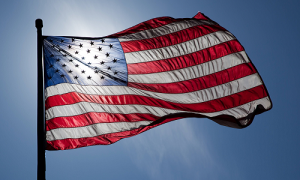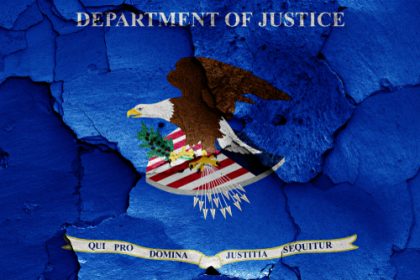DOJ Continues Shucking the Court in Latest Wire Act Lawsuit Filing
The Department of Justice continues to try to dodge the question of whether or not its reversal opinion on the reach of the United States’ 1961 Wire Act and interstate communications applies to state-run lottery enterprises. In another supplemental filing offered by the DOJ and the US Attorney’s Office in the lawsuit brought by New Hampshire and its lottery entities, the DOJ again evades the question of whether that re-re-interpreted law applies to those lotteries.
In the most recent filing, submitted on April 25, DOJ attorneys again try to have it both ways. In response to New Hampshire’s most recent filing regarding the reach of the term “whoever”, which is an important legal point within the 1961 act, the DOJ continues to dispute New Hampshire’s assertions and motion for summary judgment. Instead, the DOJ continues to argue that the issue of whether the Wire Act applies to lotteries is still “under review”, and since the DOJ hasn’t decided, New Hampshire’s case should be dismissed.
 The latest filing misconstrues the history of the Wire Act as it applies to lotteries from its introductory statement, which reads in part:
The latest filing misconstrues the history of the Wire Act as it applies to lotteries from its introductory statement, which reads in part:
Plaintiffs [New Hampshire and its two lottery entities] have not pointed to a single Wire Act prosecution of a state lottery, or its employees or vendors, for the operation of a lottery authorized under state law, in the history of the statute. Defendants therefore respectfully maintain that the Court lacks jurisdiction to resolve at this time not only whether the Wire Act reaches beyond sports gambling generally, but also whether the Wire Act could ever be applied to state lotteries and their vendors or employees, as there is no present credible threat of prosecution.
Because there is no credible threat of prosecution, the Court should dismiss this case for lack of standing. The potential Wire Act liability of state agencies, employees, and vendors involves the evaluation of numerous complicated and important issues, and the Department intends to give these issues the deliberate consideration that they deserve. Nonetheless, to avoid any suggestion that the government has forfeited possible defenses in the context of this litigation, Defendants respectfully submit that the New Hampshire Lottery Commission fails to demonstrate its entitlement to a declaratory judgment at this time on the specific theories that it has advanced: that because it falls outside the statutory term “whoever,” neither it, nor its employees, nor its vendors, may be prosecuted under the Wire Act. … Defendants express no view at this time as to the viability of other potential theories that the Lottery Commission has not asserted.
Soon after, in presenting its latest legal argument, the DOJ’s attorneys lead off with this doozy:
The Wire Act applies to “[w]hoever being engaged in the business of betting or wagering knowingly uses a wire communication facility” for certain prohibited purposes. Under the Dictionary Act, “unless the context indicates otherwise,” the terms “person” and “whoever” are defined to “include corporations, companies, associations, firms, partnerships, societies, and joint stock companies, as well as individuals.” … The Lottery Commission’s arguments fail to demonstrate that it, its employees, or its vendors fall outside the term in this context.
New Hampshire’s previously submitted legal argument to the opposite of the above offers rich historical and legal precedence, while the DOJ’s latest offers none: it is instead an exercise in legal blather. Simply put, to the shame of the US Department of Justice, it remains a sham argument and stance one wouldn’t even expect from a banana republic. The DOJ’s holding of a potential threat of prosecution, should it at any time decide that its new interpretation of the Wire Act does apply to lotteries, continues to pose a chilling effect and negative business impact on any state’s future lottery plans.
Further, the DOJ’s ongoing Wire Act scam ignores the very reason that states such as New York and Illinois asked then US-Attorney General Eric Holder to examine the Wire Act’s reach back in 2011. Several states sought legal clarification on the issue because they sought to sell their lottery tickets online, and no third-party payment processors or credit-card companies would get involved until the Wire Act issue was resolved. Current US Attorney General William Barr and a faction of prosecutors still seemingly funded by Sheldon Adelson appear focused on forgetting that whole history ever happened.
As presiding US District Court Judge Paul Barbadoro has already noted, whatever he rules likely won’t be the final word anyway. Both sides are now entrenched, and the matter is likely to be escalated and expedited to the US Supreme Court. Logic and legal precedence dictate that New Hampshire and its lottery entities should prevail with ease, but the conservative, Adelson-funded forces within the DOJ appear intent on trying to make this a political matter, rather than a legal one.


















COMMENTS